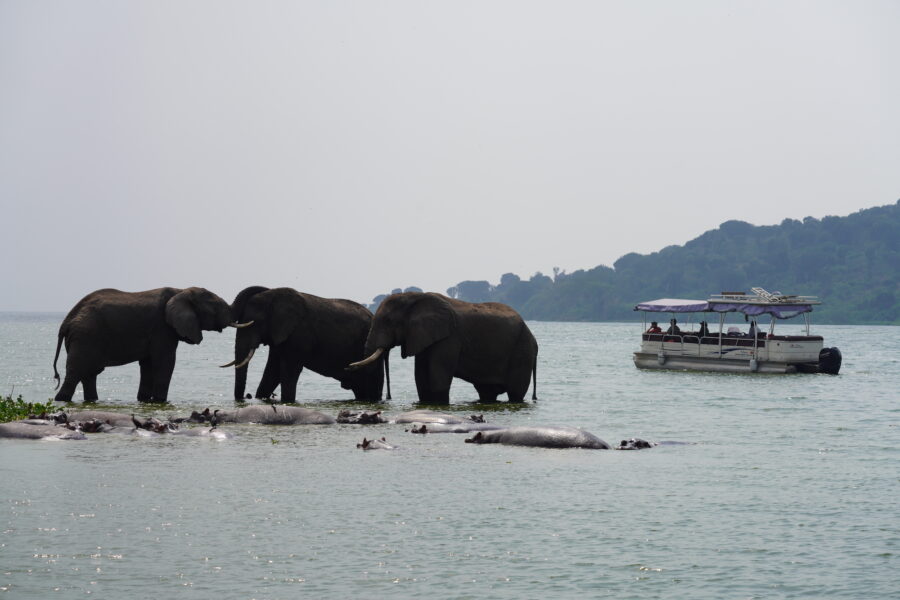
Funding Mobilised for Communities in Eastern and Southern Africa Fuels Resilience and Conservation Efforts
The African Nature-Based Tourism Platform (ANBT) has released a report on the impact of funding for community-based organizations in eastern and southern Africa
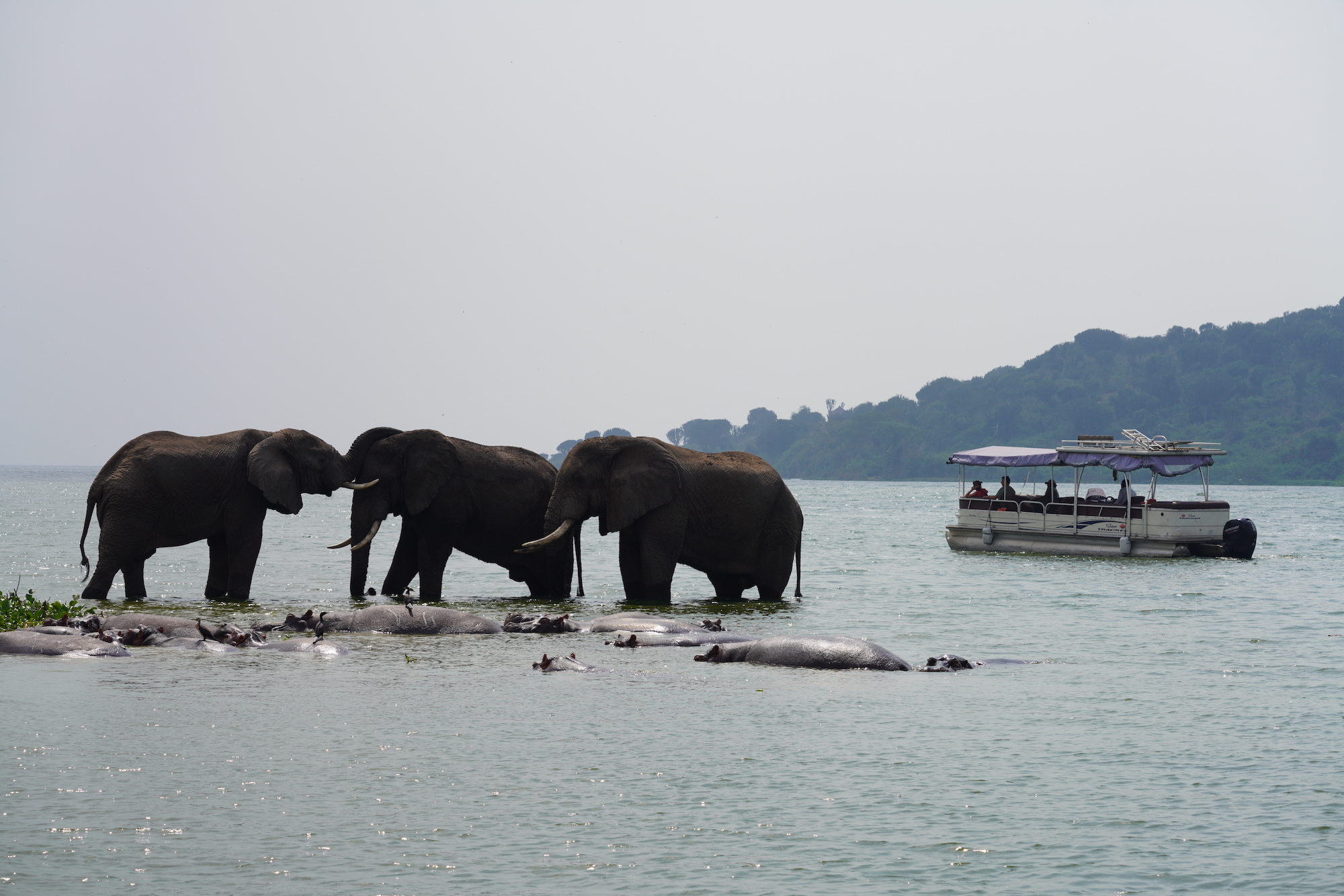
Link to report here
The African Nature-Based Tourism Platform has released a report showcasing the impact of funding mobilised for community-based organisations in eastern and southern Africa following the devastating consequences of the COVID-19 pandemic in the region. This analysis highlights the impact of the pandemic on the nature-based tourism industry as well as the communities and conservation efforts that rely on this sector. The report also showcases the importance of funding locally-led initiatives in building community resilience to future shocks and stressors.
The African Nature-Based Tourism Platform, made possible through funding from the Global Environment Facility (GEF), has been instrumental in connecting funders to community-based organisations involved in conservation and tourism. Operating in Botswana, Kenya, Malawi, Mozambique, Namibia, Rwanda, South Africa, Tanzania, Uganda, Zambia, and Zimbabwe, the Platform’s goal is to mobilise at least $15 million to support tourism-reliant communities with pandemic recovery efforts and build longer-term resilience.
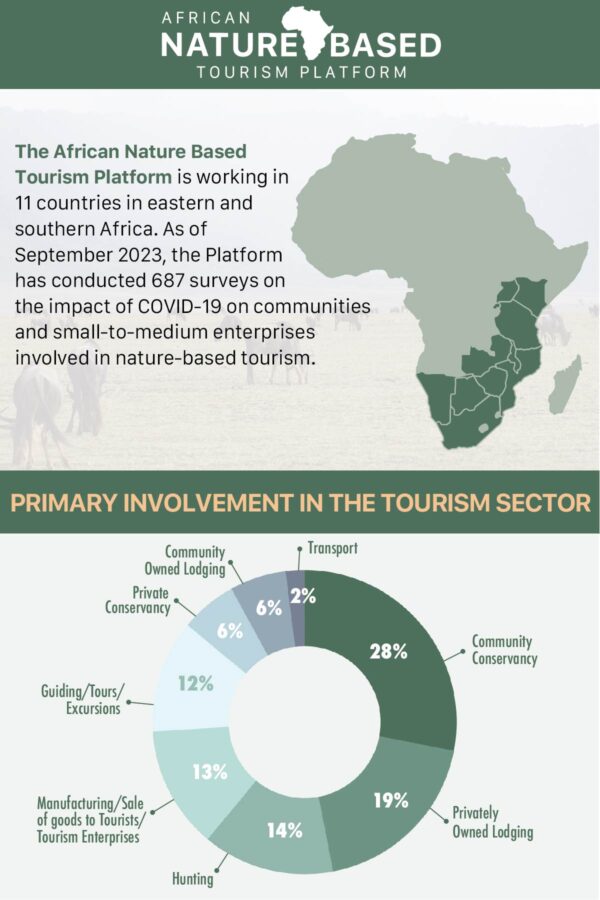
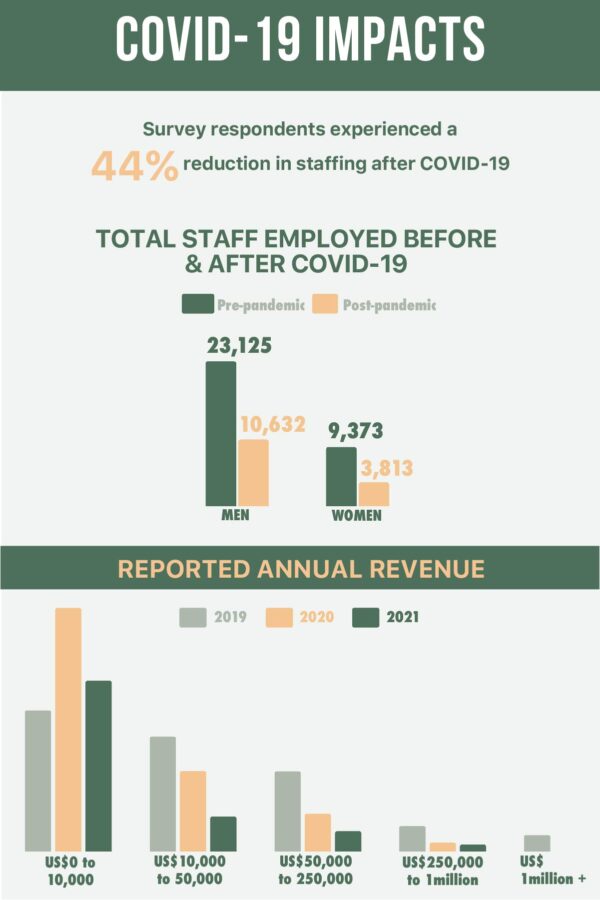
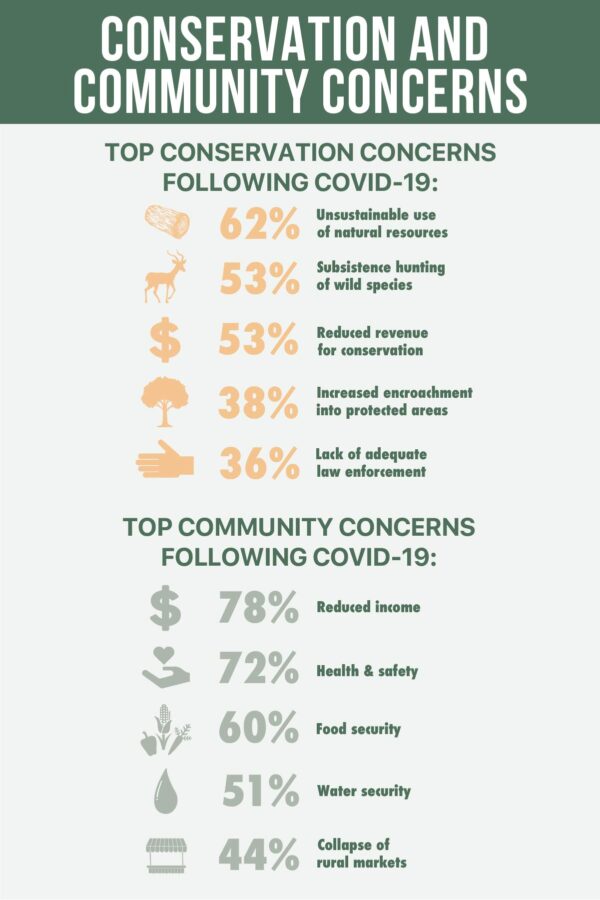
“There has been a growing demand from donors expressing a strong desire to fund community-led initiatives. However, the gap between this expressed intent and the actual flow of funding to these organisations remains a significant challenge. The African Nature-Based Tourism Platform is working to address this gap by connecting these donors with local organisations addressing the real needs on the ground.” – Rachael Axelrod, Senior Program Officer, the African Nature-Based Tourism Platform.
Africa is home to one-third of the world’s biological diversity, with eastern and southern Africa boasting over 2.1 million square kilometers of protected areas and seven biodiversity hotspots. Maintaining effective management of this biodiversity requires sustained funding, a large portion of which comes from nature-based tourism. The shock to the tourism sector caused by the COVID-19 pandemic highlighted the weaknesses of a conservation funding model based primarily on tourism and exacerbated the vulnerability of the communities and landscapes dependent on this industry. The global pandemic intersected with the region’s existing climate change and biodiversity crises, compounding the impacts on the most vulnerable.
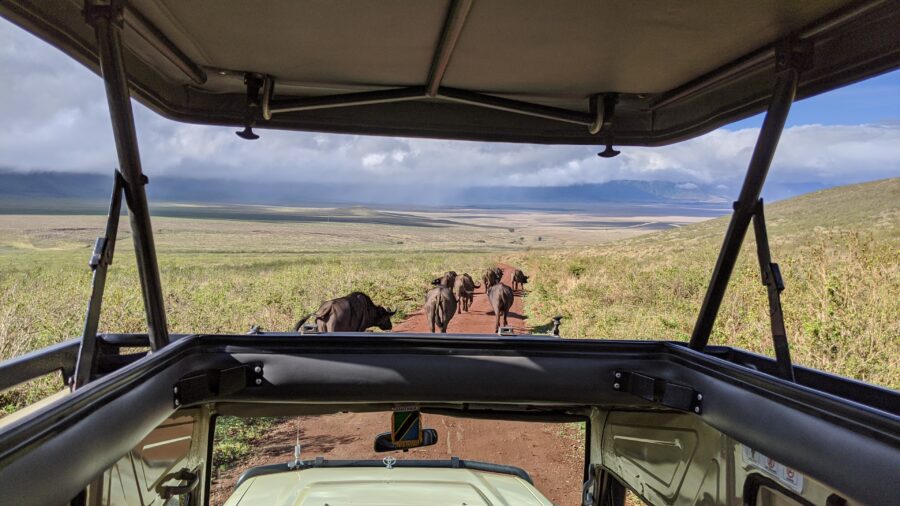
To address these challenges, the Platform worked with partners in 11 countries to conduct surveys assessing the impact of COVID-19 on local communities and small to medium enterprises (SMEs) within the nature-based tourism sector. To date, the Platform has conducted 687 surveys across its 11 target countries. Leveraging this survey data, the Platform has collaborated with partners to develop community-led and designed grant proposals. This collaborative approach has resulted in the mobilisation of significant funding going directly to community-based organisations.
“Kenya Wildlife Conservancies Association has participated in proposal development opportunities provided by the African Nature-Based Tourism Platform that have increased our organisation’s capacity to fundraise. This enabled KWCA to secure funding from IUCN BIOPAMA to improve effective management successfully and equitable governance of one of our member conservancies” – Vincent Oluoch, Senior Program Officer, KWCA.
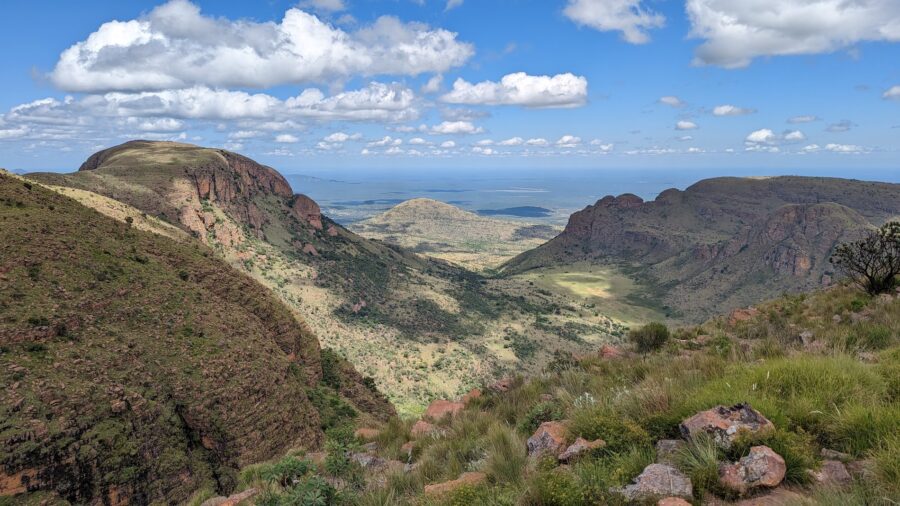
Funding mobilised to date includes:
- In Malawi, a $186,000 grant from IUCN BIOPAMA supports climate-resilient alternative livelihoods near Kasungu National Park.
- In South Africa, a $14,000 grant from the South Africa National Lotteries Commission to help promote indigenous craft development for communities near Kruger National Park.
- In Botswana, an $87,000 grant from the Permanent Okavango River Basin Water Commission (OKACOM) is addressing food and water security for farmers near the Okavango Delta and Chobe National Park
- In Zimbabwe, $135,000 in funding is improving community resilience to climate change in the Binga and Tsholotsho districts.
- In Namibia, $159,000 is supporting climate adaptation projects near Bwabwata National Park and surrounding conservancies.
- In Kenya, a $208,000 grant from IUCN BIOPAMA is addressing governance challenges in Lumo Community Conservancy.
- In Tanzania, a grant of $1.4 million from the European Union is addressing governance issues in 12 community-owned Wildlife Management Areas (WMAs).
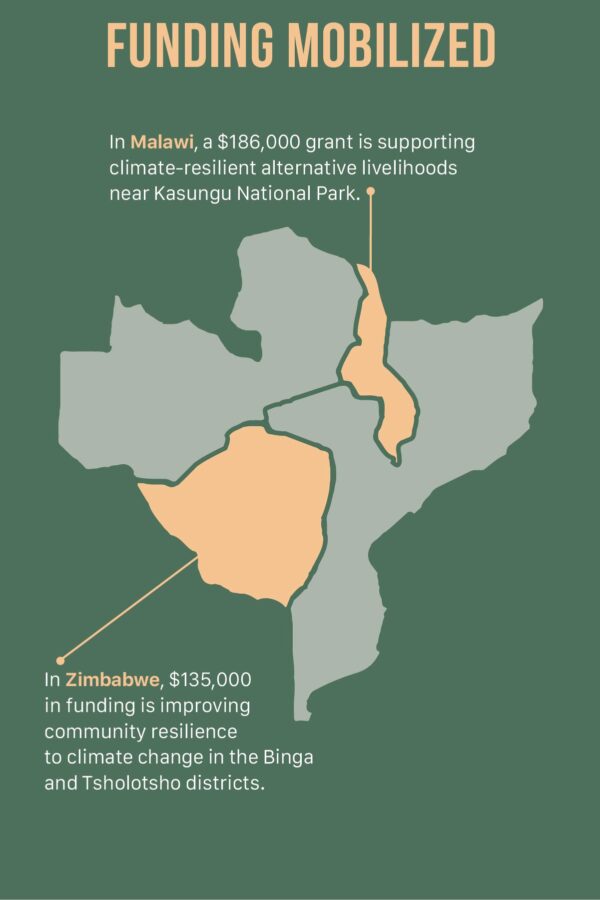
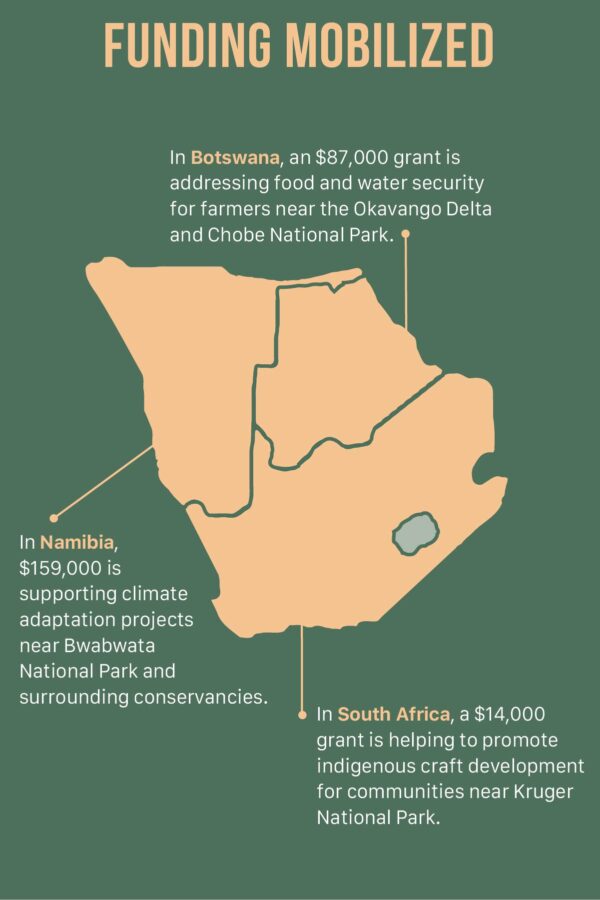
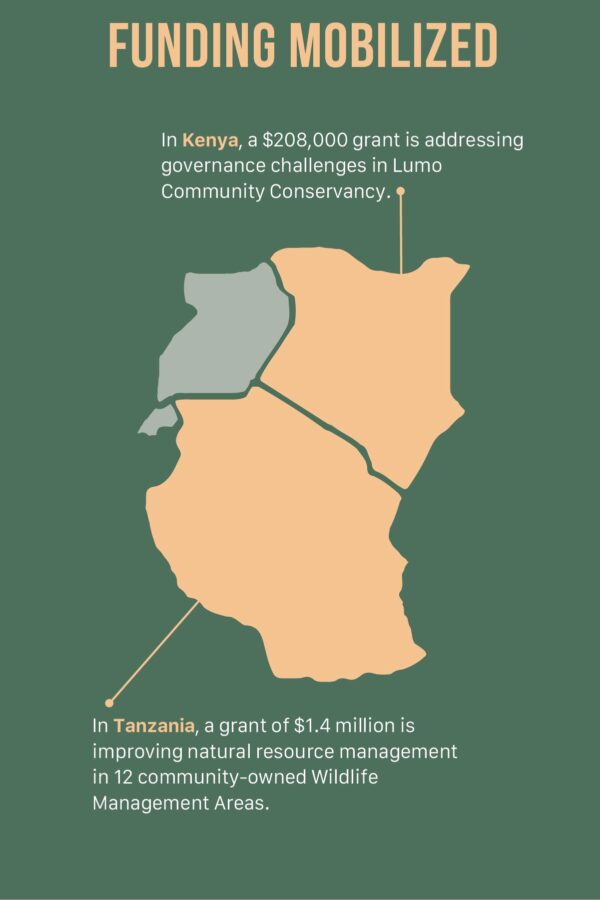
These projects will help build the resilience of communities to future shocks and stressors, including the impacts of climate change.
*These seven projects would not be possible without the Platform’s partners who include Kasungu Wildlife Conservation for Community Development Association (KAWICCODA) and Resource Africa in Malawi, Nourish in South Africa, Ngamiland Council of NGOs (NCONGO) in Botswana, WWF Zimbabwe, WWF Namibia, the Kenya Wildlife Conservancies Association (KWCA) and the Community Wildlife Management Area Consortium (CWMAC) and Honeyguide Foundation in Tanzania.
